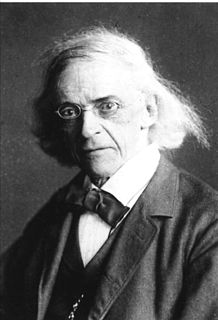A Quote by Edward Gibbon
To resume, in a few words, the system of the Imperial government, as it was instituted by Augustus, and maintained by those princes who understood their own interest and that of the people, it may be defined an absolute monarchy disguised by the forms of a commonwealth. The masters of the Roman world surrounded their throne with darkness, concealed their irresistible strength, and humbly professed themselves the accountable ministers of the senate, whose supreme decrees they dictated and obeyed.
Quote Topics
Absolute
Absolute Monarchy
Accountable
Augustus
Commonwealth
Concealed
Darkness
Defined
Dictated
Disguised
Few
Few Words
Forms
Government
Imperial
Interest
Irresistible
Maintained
Masters
May
Ministers
Monarchy
Own
People
Princes
Resume
Roman
Senate
Strength
Supreme
Surrounded
System
Themselves
Those
Throne
Understood
Whose
Words
World
Related Quotes
A Tory..., since the revolution, may be defined in a few words, to be a lover of monarchy, though without abandoning liberty; anda partizan of the family of Stuart. As a Whig may be defined to be a lover of liberty though without renouncing monarchy; and a friend to the settlement in the protestant line.
Americans love to mock the idea of monarchy, and yet we have our own de facto monarchy. I think what these leaks did is, they demonstrated that there really is this government that just is the kind of permanent government that doesn’t get affected by election choices and that isn’t in any way accountable to any sort of democratic transparency and just creates its own world off on its own.
Augustus gradually increased his powers, taking over those of the senate, the executives and the laws. The aristocracy received wealth and position in proportion to their willingness to accept slavery. The state had been transformed, and the old Roman character gone for ever. Equality among citizens was completely abandoned. All now waited on the imperial command.
As to those other things which we hold on the authority, not of Scripture, but of tradition, and which are observed throughout the whole world, it may be understood that they are held as approved and instituted either by the apostles themselves, or by plenary Councils, whose authority in the Church is most useful, e.g. the annual commemoration, by special solemnities, of the Lord's passion, resurrection, and ascension, and of the descent of the Holy Spirit from heaven, and whatever else is in like manner observed by the whole Church wherever it has been established.
Forms of government become established of themselves. They shape themselves, they are not created. We may give them strength and consistency, but we cannot call them into being. Let us rest assured that the form of government can never be a matter of choice: it is almost always a matter of necessity.
The true forms of government, therefore, are those in which the one, or the few, or the many, govern with a view to the common interest; but governments which rule with a view to the private interest, whether of the one or of the few, or of the many, are perversions. For the members of a state, if they are truly citizens, ought to participate in its advantages.
Anarchism is opposed to states, armies, slavery, the wages system, the landlord system, prisons, monopoly capitalism, oligopoly capitalism, state capitalism, bureaucracy, meritocracy, theocracy, revolutionary governments, patriarchy, matriarchy, monarchy, oligarchy, protection rackets, intimidation by gangsters, and every other kind of coercive institution. In other words, anarchism opposes government in all its forms.
If you want a symbol of Roman power and strength look no further than the Praetorian or Imperial Guard. We could take this one step further. It was this world of Roman power into which Christ came, in which the Apostles ministered, in which the New Testament authors wrote, and in which Christianity came into being. And to all of those things, Rome stood opposed, violently opposed.
Suddenly I find myself feeling sorry for those greedy, needy people whose huge salaries are never quite enough, whose sense of worth is defined by their own personal wad. What a diminished, impoverished world they must inhabit ... We should feel sorry for them and their sadly limited lives. Then we should remember never to trust the judgement of those whose priorities are so idiotically skewed.
That the people have an original right to establish, for their future government, such principles as, in their opinion, shall most conduce to their own happiness, is the basis, on which the whole American fabric has been erected.... The principles, therefore, so established, are deemed fundamental. And as the authority, from which they proceed, is supreme ... they are designed to be permanent.... The powers of the legislature are defined, and limited; and that those limits may not be mistaken, or forgotten, the constitution is written.
My fervent supplications to that Almighty Being who rules over the universe; who presides in the councils of nations; and whose providential aid can supply every human defect; that his benediction may consecrate to the liberties and happiness of the People of the United States, a Government instituted by themselves for these essential purposes, and may enable every instrument employed in its administration to execute with success the functions allotted to his charge. In tendering this homage to the Great Author of every public and private good.






































